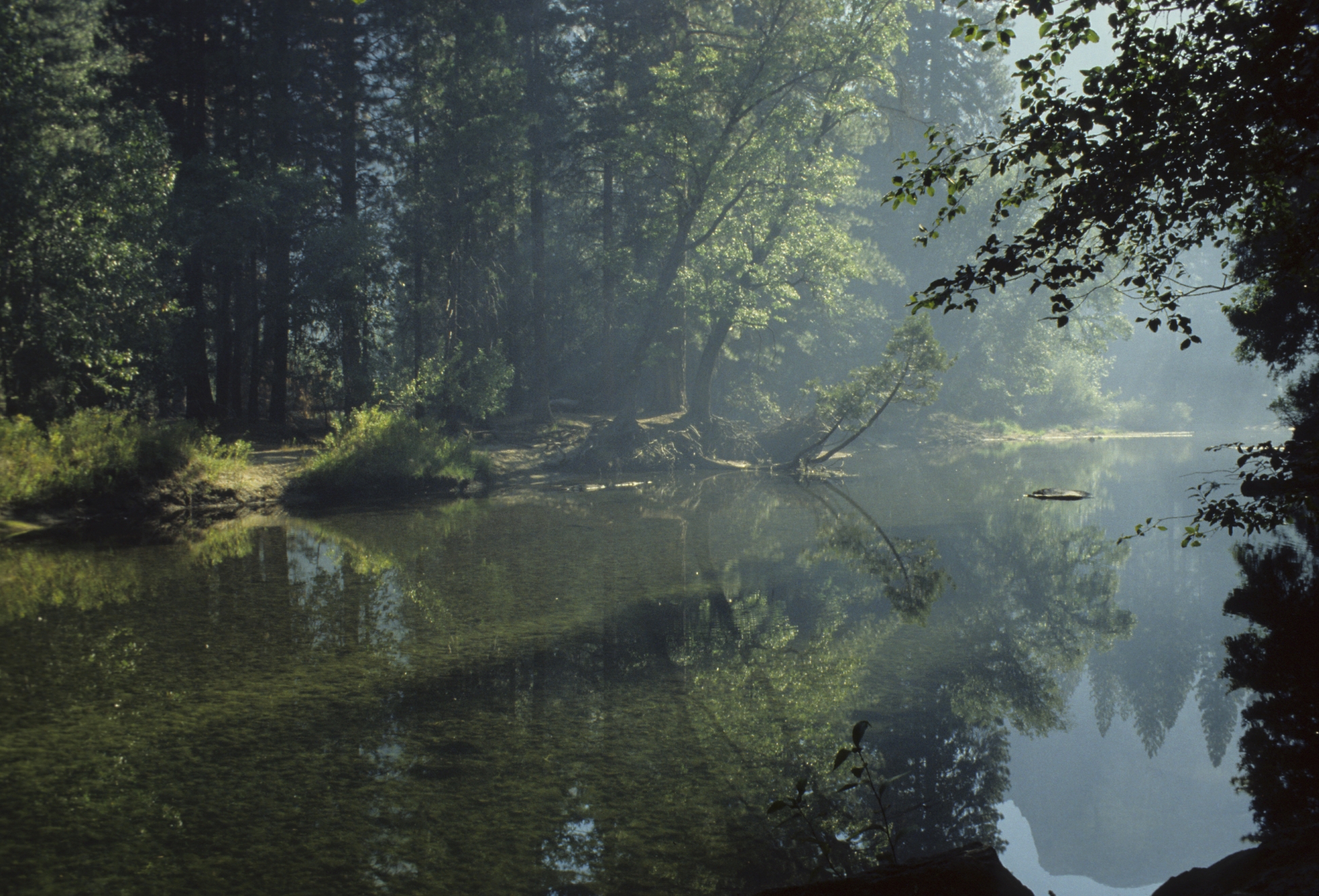Things to Know

Merced River, Yosemite Valley; © Darien Simon
Dr. Simon has earned degrees in Biology (B.S. University of Oregon), Educational Psychology and Counseling (M.S. California State University – Northridge), and Planning and Policy (Ph.D. Rutgers University). She has also studied paleontology and mass extinctions, and is a perpetual student with wide-ranging interests, the most recent of which is learning to fly a drone.
For over 20 years, Dr. Simon conducted research and taught in the US (Rutgers University, New Brunswick Theological Seminary, University of Wisconsin Cooperative Extension), UK (Regent’s University Business School, University of Leeds), and Australia (University College London’s Adelaide campus), focusing on whole systems approaches to sustainability and climate change adaptation and resilience. Applying a complex adaptive systems approach means incorporating community perspectives and collaboration across academic disciplines and economic sectors as key aspects of the work. The same paradigm applies, whether her work was academic or independent consulting.
Between 2016 and 2018, Dr. Simon was the Senior Research Fellow managing a University of Leeds project that proved it was possible to adapt an existing, successful infrastructure-oriented complexity management process to uses in intransigent social policy issues. The prototype was developed using real challenges faced by city government teams.
CA:TMaPS (both CA:TNP© and SCAMP©) offers the next generation of that work, with updated definitions of complexity factors (based on the UK’s Magenta Book 2020 Supplementary Guide: Handling Complexity in Policy Evaluation) and new system conditions or team capabilities. These improvements provide an innovative, adaptable, and comprehensive system of practices to address complex social and environmental policy challenges to communities and community organizations, governments, businesses, and industries.
Dr. Simon is a contributor to Skype a Scientist, as well as several community education programs to improve understanding of science in general, and climate science in particular. Her favorite question from a Skype a Scientist student (so far) is “What’s the dumbest thing you’ve ever heard a scientist say?” Answer: “That’s not possible!”, one of the most unscientific statements ever without a qualification such as “With our current technology/understanding…”
When not engaging with science and policy topics, Dr. Simon enjoys exploring new landscapes and thought-scapes, as well as photography, good food, music, books, humour, and lively discussions across many subject areas.
Community Education resources:
2010:
Elliott, C., V. Simon-Brown, M. Apel, and D. Simon. Living Sustainably: It’s Your Choice. Online Course. National Network for Sustainable Living Education.
2011:
Climate Change Handbook Won both Western Regional and National publication awards for Educational Piece – Team, National Association of Community Development Extension Professionals
Global Paradigm Change (coming soon)
Select presentations:
2010:
UK-Environmental Observation Framework Data Initiative, Data Advisory Group and Management Group quarterly meetings, co-organizer
2011 – 2012:
Guest lecture: Topic: Sustainability Fundamentals, Global Political Economy Course, Regent’s College, London, UK.
2013:
Guest lecture: Topics: Achieving Sustainable Outcomes, The Natural Step: The Scandinavian Experience, Energy Technologies, University College London Australia, Adelaide SA Australia.
2013 – 2015:
Social License to Operate, University College London Australia, Adelaide SA Australia. Three topics: Does a Government Agency Automatically Have a Social License to Operate?, Conflict and Outrage Management, Experiential Learning – Negotiating a solution to the World Heritage status challenge of the Great Barrier Reef
Water Management, University College London Australia, Adelaide SA Australia. Topic: Water Wars
2014:
BHP Billiton Sustainable Communities/UCL Grand Challenge Symposium Series, University College London, UK. November. Topic: Local Approaches to Stewardship.
How to Change the World: Sustainably, Equitably, Collaboratively; Department of Science, Technology, Engineering, and Public Policy; University College London, UK. Topic: Collaboration and Engagement for Culture Change
IAFOR Conference on Sustainability, Energy and the Environment, Providence, Rhode Island, US. September. Title: Individual, Community and Society Challenges in Low Carbon Energy Transition: The Case of Yorke and Mid North Region, South Australia.
Sustainable Economic Growth for Regional Australia, Alice Springs, AU. October. Title: Regional Low Carbon Development Issues in Yorke and Mid North Region, South Australia.
Yorke and Mid North Region workshops (Farrell Flats, Snowtown, Ardrossan, and Booleroo), Topic: Making Yorke and Mid North Region Low Carbon Investment Ready, Phases 1 and 2
Yorke and Mid North Regional Sustainability Forum, Port Pirie, SA. Topic: Making Yorke and Mid North Region Low Carbon Investment Ready
2015:
On Sustainability Conference, Copenhagen, DK. January. Topic: Low Carbon Energy Transition Challenges in Rural Regional South Australia.
2017:
Co-Creating Cities and Communities, Bristol, UK. July. Topics: Co-creation challenge: bridging gaps between experts and communities; Co-designing the TRUE tool for urban resources and future city ecosystems.
Select publications:
Books and Book Chapters:
Simon, D., E. Ang and A. 2013. Lundebye. Stepping outside a comfort zone—Transdisciplinary innovation in sustainability education. Enhancing Education for Sustainable Development in Business Studies, Hospitality, Leisure, Sport and Tourism. Higher Education Academy, London.
Papers and reports:
Dane, A., T. Wojciechowski, T. Kane, P. Kling, D. Simon, J. Resick, C. Seaman, and B. Kazmierski. Municipal Energy Planning: An Energy Efficiency Workbook, version 1.0. University of Wisconsin Cooperative Extension, Madison.
Greenberg, M., A. Isserman, D. Krueckeberg, K. Lowrie, H. Mayer, D. Simon, and D. Sorenson. 1996. Socioeconomic impacts of Nuclear Weapons Facilities, 1950 to 1993: The Case of Savannah River. CRESP Researcher Report 4, New Brunswick, NJ.
Greenberg, M., K. Lowrie, D. Krueckeberg, H. Mayer, and D. Simon. 1997. Bombs and Butterflies: A Case Study of the Challenge of Post Cold War Environmental Planning and Management for the United States Nuclear Weapons Sites. Journal of Environmental Planning and Management, 40(6):739 – 750.
Greenberg, M., D. Simon, H. Mayer, and K. Lowrie. 2000. Internet Technology as Aid to Neighborhood and Brownfields Redevelopment. Journal of Urban Technology 7(3): 19 – 31.
Lowrie, K., Greenberg, D. Simon, L. Solitare, M. Kilimer, H. Mayer. 2002. Remediation and Stewardship: Coexisting Processes to Protect Health and the Environment. CRESP Researcher Report 70. New Brunswick, NJ.
Miller, K.T., D. Simon, M. Greenberg, K. Lowrie, H. Mayer, A. Lambiase, R. Novis. Addendum: Brownfields Redevelopment as a Tool for Smart Growth: Analysis of Twelve New Jersey Municipalities. Addendum to Report 12. New Brunswick, N.J.: National Center for Neighborhood and Brownfields Redevelopment. New Brunswick, NJ.
Owen, G., and D. Simon, D. SA Power Networks Capacity Tariff Trial 2012- 2013: Final report on Data Analysis from Trial (Year 1). International Energy Policy Institute, University College London Australia, Australia.
Simon, D. 2000. Public participation in reuse and remediation decisions at DOE FUSRAP, UMTRA and small sites. PhD Dissertation. New Brunswick, NJ.
Simon, D. and G. Green 2009. Labor Market Conditions in Pierce County 2008 – 2009, University of Wisconsin Cooperative Extension, Ellsworth, WI.
Simon, D. and M. Greenberg. 1997. The Need for Brownfields Education in New Jersey Communities, Report 11, New Brunswick, N.J.: National Center for Neighborhood and Brownfields Redevelopment.
Simon, D., and M. Greenberg. 1997. Group Meetings as Fora for Understanding Public Participation in Future Land Use Decisions. CRESP Researcher Report 8, New Brunswick, NJ.
Simon, D. and M. Greenberg. 1998. Legislative and Regulatory Framework Guiding Public Participation at DOE Small Sites. CRESP Researcher Report 23, New Brunswick, NJ.
Simon, D. and M. Greenberg. 2000. The Pinellas Plant Transition Success – A Case Study of Community Redevelopment at a US Department of Energy Environmental Management Program Site. CRESP Researcher Report 27. New Brunswick, NJ.
Simon, D., and M. Greenberg. 2001. Lessons Learned from the U.S. Forest Service’s Collaborative Stewardship: Case 1 — Camino Real District Timber Cutting. CRESP Researcher Report 42. New Brunswick, NJ.
Simon, D., and M. Greenberg. 2001. Lessons Learned About Stewardship from Locally-Driven Efforts in the U.S. Southwest: Case 2–Grazing, Open Space Protection and Landscape Restoration. CRESP Researcher Report 49. New Brunswick, NJ.
Simon, D., and M. Greenberg. 2001. Approaches to Collaborative Stewardship. CRESP Researcher Report. New Brunswick, NJ.
Simon, D. and S. Simons. 2014. Making Yorke and Mid North Region Low Carbon Investment Ready Phases 1 and 2 Reports. International Energy Policy Institute, University College London, Australia.
St. Croix Valley Foreclosure Intervention Workbook. 2009. St. Croix Valley Foreclosure Intervention Task Force, Darien Simon, Chair. University of Wisconsin Cooperative Extension, Madison.
Styan, C.A., W. Trott, C. Bartley, O. Sharpe, H. Wu, A. Tubb, and D. Simon. 2015. Adoption of Social Media in the Australian Energy and Resources Sectors. SRMINING2015 – 3rd International Conference on Social Responsibility in Mining. 4-6 November 2015, Antofagasta, Chile.
In preparation:
Simon, D., P. Bagguley, and P. Chatterton. Managing Complexity and Enhancing Capability within Urban Policy Environments.
Digital and other forms of output:
Greenberg, M. 1999. Restoring America’s Neighborhoods. Rutgers University Press, New Brunswick, NJ, cover photograph
Leeds TRUE prototype tool. 2018. https://www.truetool.org/
